INTRODUCTION
PRADAXA 110 MG contain dabigatran etexilate which belongs to a group of medicine called anticoagulants. It is used to prevent the formation of blood clots in the veins after knee or hip replacement surgery. If you have a form of irregular heart rhythm called nonvalvular atrial fibrillation this medicine helps in preventing the formation of blood clots in the brain (stroke) and other blood vessels in the body. It also used to treat blood clots formed in the veins of your legs and lungs and prevent it from reoccurring.
Blood clot is a clump of bloods that has changed from liquid to gel-like or semisolid state. Clotting is a process which prevents the loss of too much bloods in certain instance. By making change in your lifestyle such as not smoking, eating a healthy diet, getting regular exercise, and losing weight can reduce your risk of having a blood clot.
Do not take this medicine if you have severe kidney, liver, heart problems, if you have any bleeding disorders or if you are taking other medicines to reduce blood clotting. Pregnant and breastfeeding women should consult their doctor before taking this medicine. This medicine is strictly not recommended for use in children and adolescents below 18 years old.
USES OF PRADAXA 110MG
- Prevent and treat blood clots
HOW PRADAXA 110MG WORKS
PRADAXA 110MG is a direct thrombin inhibitor which works by reversibly blocking the catalytic site of thrombin and produces a rapid (within 2 hours) anticoagulant action.
DIRECTIONS FOR USE
Always take PRADAXA 110 MG exactly as your doctor has told you. This medicine must be taken with or without food. It should be swallowed whole with water. Do not crush or chew the medicine. Your doctor will decide the suitable dose depending on your conditions.
SIDE EFFECTS OF PRADAXA 110MG
SHORT DESCRIPTION
SERIOUS
- Bruising or bleeding
- Allergic reaction (including hives, rash, and itching)
- Serious allergic reaction (including chest pain or chest tightness, swelling of your face or tongue, trouble breathing or wheezing, dizziness, or faint)
COMMON
- A fall in the amount of haemoglobin in blood
- Unusual laboratory test results on liver function
- Bleeding may happen from the nose, into the stomach or bowel, from penis/vagina or urinary tract (including blood in the urine that stains the urine pink or red) or under the skin
- Stomach pain, stomach upset or burning
- Indigestion
- Frequent loose or liquid bowel movements
- Nausea
RARE
- Blood-stained discharge from the site of entry of a catheter into a vein
- Coughing of blood or blood-stained sputum
- Fall in the number of platelets in the blood
- Ulcer in the stomach or bowel (incl. ulcer in the gullet)
- Inflammation of the gullet and stomach
- Reflux of gastric juice into the gullet
- Difficulty in swallowing
- Fluid exiting a wound
- Liver enzymes increased
- Yellowing of the skins or whites of the eyes
Related Product
Pradaxa 75mg Capsule
Pradaxa 110mg Capsule
Pradaxa 150mg Capsule
HOW TO MANAGE SIDE EFFECTS
Stomach pain:
Keep try to rest and relax. Eat and drink slowly and smaller and frequent meals. Applying a heat pad or covered hot water bottle on your stomach may also help. If still pain persists, speak to your doctor.
Indigestion:
Drink water. Avoid lying down. Take warm bath or use heat bag. Avoid smoking and drinking alcohol. Avoid difficult-to-digest foods.
Nausea:
Keep try taking this medicine with, or just after, a meal or snack and stick to simple meals and do not eat rich or spicy food.
Headache:
Apply hot or cold-water bag on your head. Take rest in a quiet and dark room. Drink tea or coffee.
WARNING & PRECAUTIONS
PREGNANCY
PRADAXA 110MG is not recommended for use in pregnant women unless necessary. Discuss the risks and benefits with your doctor.
BREASTFEEDING
PRADAXA 110 MG is not recommended for use in breastfeeding women unless necessary. Discuss the risks and benefits with your doctor.
ALCOHOL
Consumption of alcohol is not recommended during treatment with PRADAXA 110 MG.
KIDNEY
PRADAXA 110MG is not recommended in patients with active kidney diseases. Before taking this medicine consult your doctor.
LIVER
PRADAXA 110MG is not recommended in patients with active liver diseases. Before taking this medicine consult your doctor.
ALLERGY
Do not take PRADAXA 110 MG if you are allergic (hypersensitive) to dabigatran etexilate or any other ingredients in this medicine.
HEART DISEASE
PRADAXA 110 MG is not recommended in patients with active heart diseases. Before taking this medicine consult your doctor.
OTHERS
Tell your doctor if you have or had a condition such as,
- Are currently bleeding
- Have a disease in an organ of the body that increase the risk of serious bleeding (e.g. stomach ulcer, injury or bleeding in the brain, recent surgery of the brain or eye)
- Have undergo surgery
- Have or had surgical tissue removal (biopsy) in the past month
- Have had a serious injury (e.g. bone fracture, head injury or any injury requiring surgical treatment)
- Are suffer from an inflammation of the gullet or stomach
- Have problem with reflux of gastric juice into the gullet
- Are suffer from dehydration (symptoms include feeling thirsty and passing reduced amounts of dark-coloured (concentrated) urine)
- Are older than 75 years
- Are weigh 50 kg or less
- Have antiphospholipid syndrome (APS)
INTERACTIONS
Talk to your doctor if you are taking,
- Warfarin, phenprocoumon, acenocoumarol, heparin, clopidogrel, prasugrel, ticagrelor, rivaroxaban, acetylsalicylic acid (used to reduce blood clot)
- Ketoconazole, itraconazole (used to treat fungal infection)
- Amiodarone, dronedarone, quinidine, verapamil (used to treat abnormal heart beats)
- Tacrolimus, cyclosporine (prevent organ rejection after transplantation)
- Glecaprevir and pibrentasvir (used to treats hepatitis C)
- Acetylsalicylic acid, ibuprofen, diclofenac (used to treat pain and inflammation)
- St. John’s wort, selective serotonin re-uptake inhibitors or serotonin norepinephrine re-uptake inhibitors (used to treat depression)
- Rifampicin or clarithromycin (used to treat infection)
- Ritonavir (used to treat HIV infection)
- Carbamazepine, phenytoin (used to treat epilepsy)

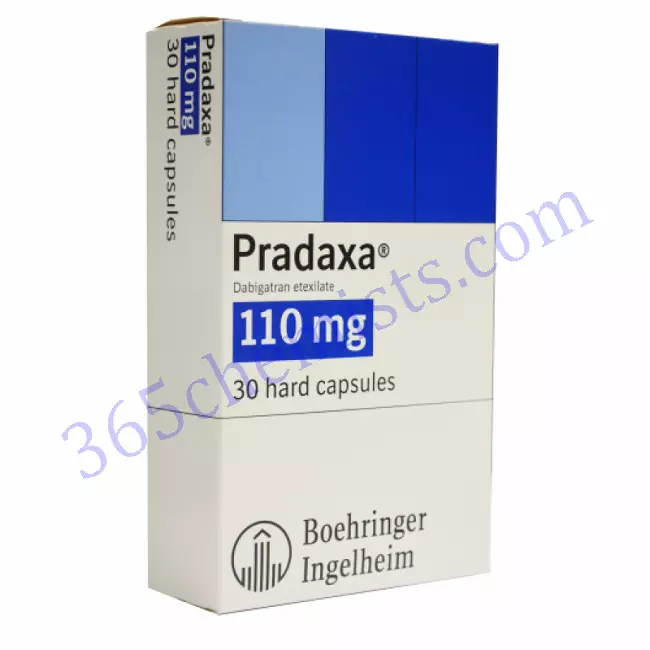

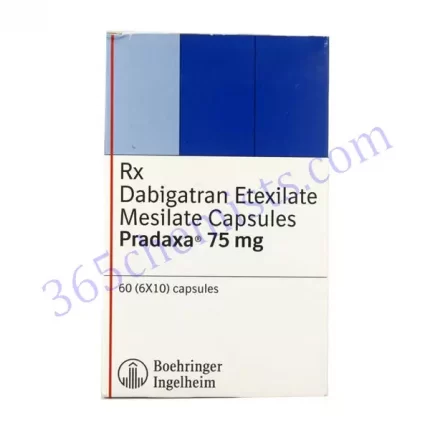
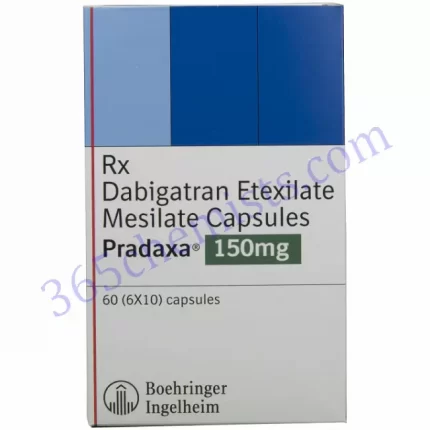
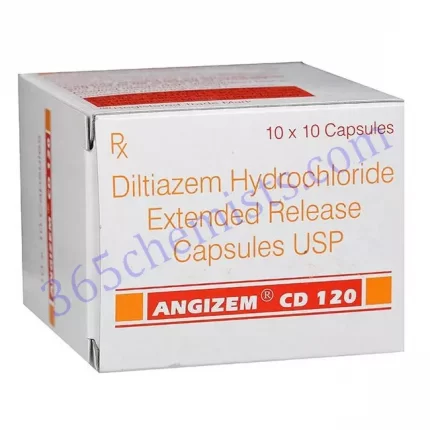
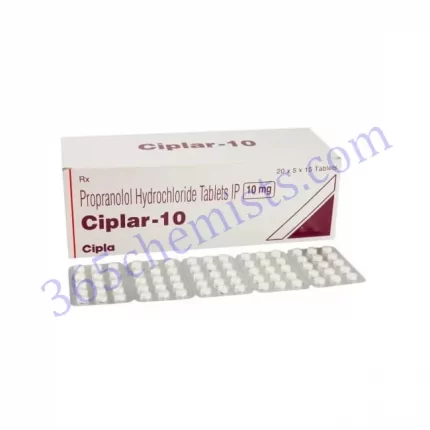

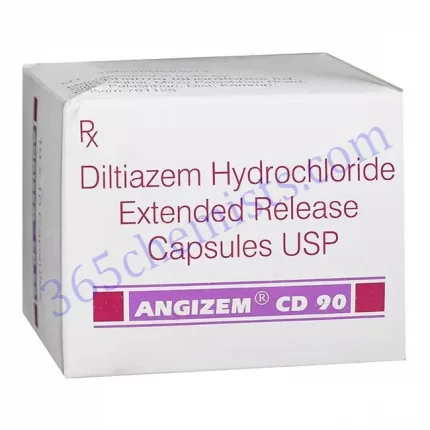
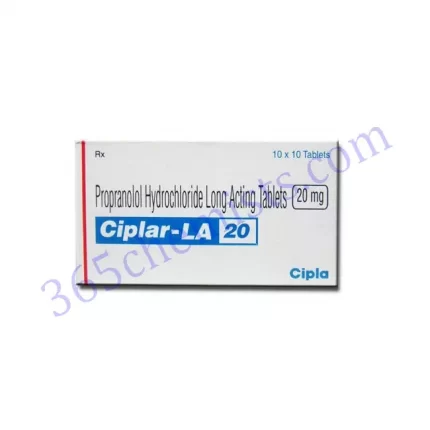
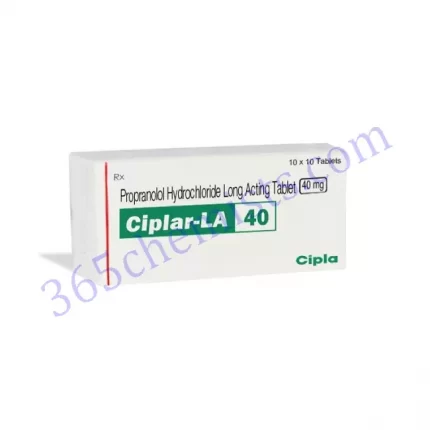
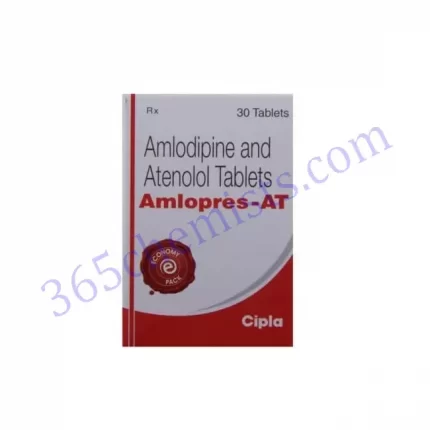
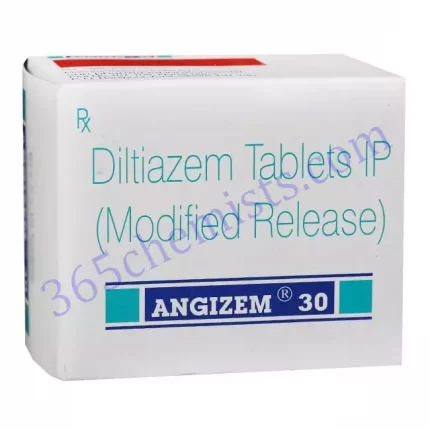
Reviews
There are no reviews yet.